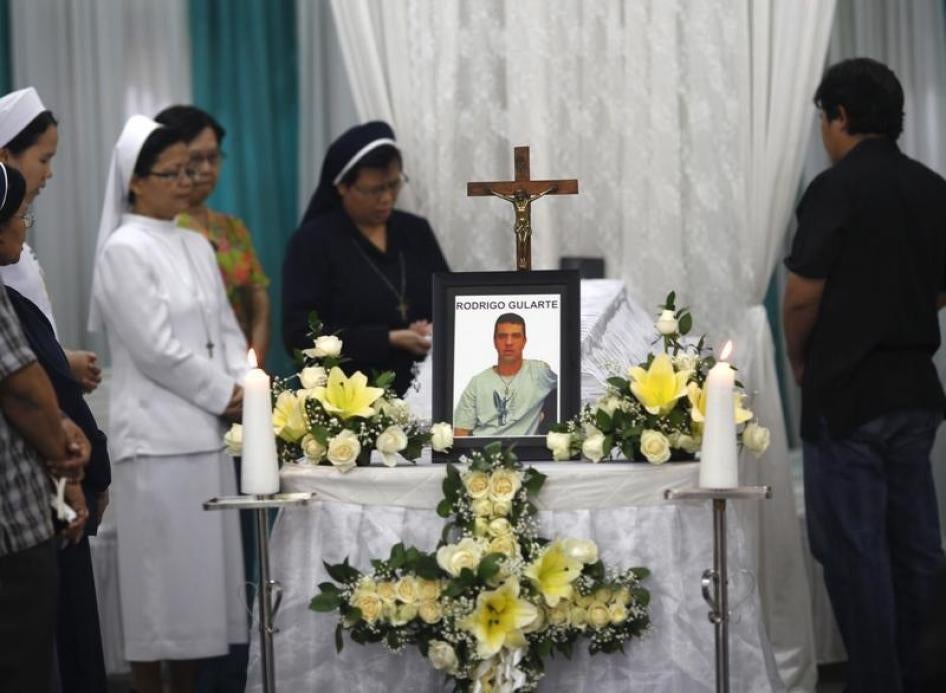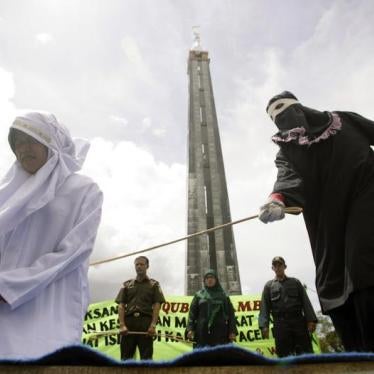Indonesia’s government on Tuesday marked World Day Against the Death Penalty by issuing a self-serving and contradictory statement on its death penalty policy.
Law and Human Rights Minister Yasonna Laoly reaffirmed the government won’t seek to abolish the death penalty, but would pursue a “win-win solution” designed to appease both death penalty supporters and opponents. That might include mandatory judicial reviews of death penalty judgments and possible sentence commutation for death row prisoners.
Indonesia ended a four-year unofficial moratorium on the death penalty in March 2013, and President Joko “Jokowi” Widodo has made the execution of convicted drug traffickers a signature policy issue. Since Jokowi took office in 2014, 18 convicted drug traffickers were executed in 2015 and 2016 – the majority citizens of other countries. Jokowi has routinely rejected their governments’ calls for clemency, citing national sovereignty. The government’s apparent newfound flexibility on its death penalty policy, including a temporary suspension of executions in 2017, was linked by the attorney general to its ambitions to secure United Nations member support to become a non-permanent member of the UN Security Council.
Recent evidence uncovered by the ombudsman of “maladministration” by the Indonesian government in denying the legal rights of a Nigerian citizen executed for drug trafficking in July 2016 underscore the need for the death penalty’s abolition. But Laoly’s claims of a more flexible death penalty policy are contradicted by Indonesia’s performance last month during the UN Universal Periodic Review of Indonesia’s rights record. Jakarta rejected recommendations by UN member countries that the government enhance safeguards on the use of the death penalty, including adequate and early legal representation for defendants and not executing people with mental illness. It also rejected a recommendation to review all cases with a view to commuting death sentences or at least ensuring “fair trials that fully comply with international standards.”
Jokowi’s government should stop its cynical efforts to use the cruel and irreversible punishment of the death penalty as a bargaining chip for a Security Council seat. Instead it should publicly recognize that the death penalty has no place in a right-respecting country and immediately move toward abolition.
|
Dispatches
Indonesia’s Contradictory Death Penalty Rhetoric
Professed Flexibility Linked to UN Security Council Ambitions
Your tax deductible gift can help stop human rights violations and save lives around the world.
Most Viewed
-
November 25, 2019
A Dirty Investment

-
June 3, 2025
“They’re Ruining People’s Lives”

-
January 25, 2024
“We’re Dying Here”

-
April 27, 2021
A Threshold Crossed

-
November 19, 2012
Losing Humanity





